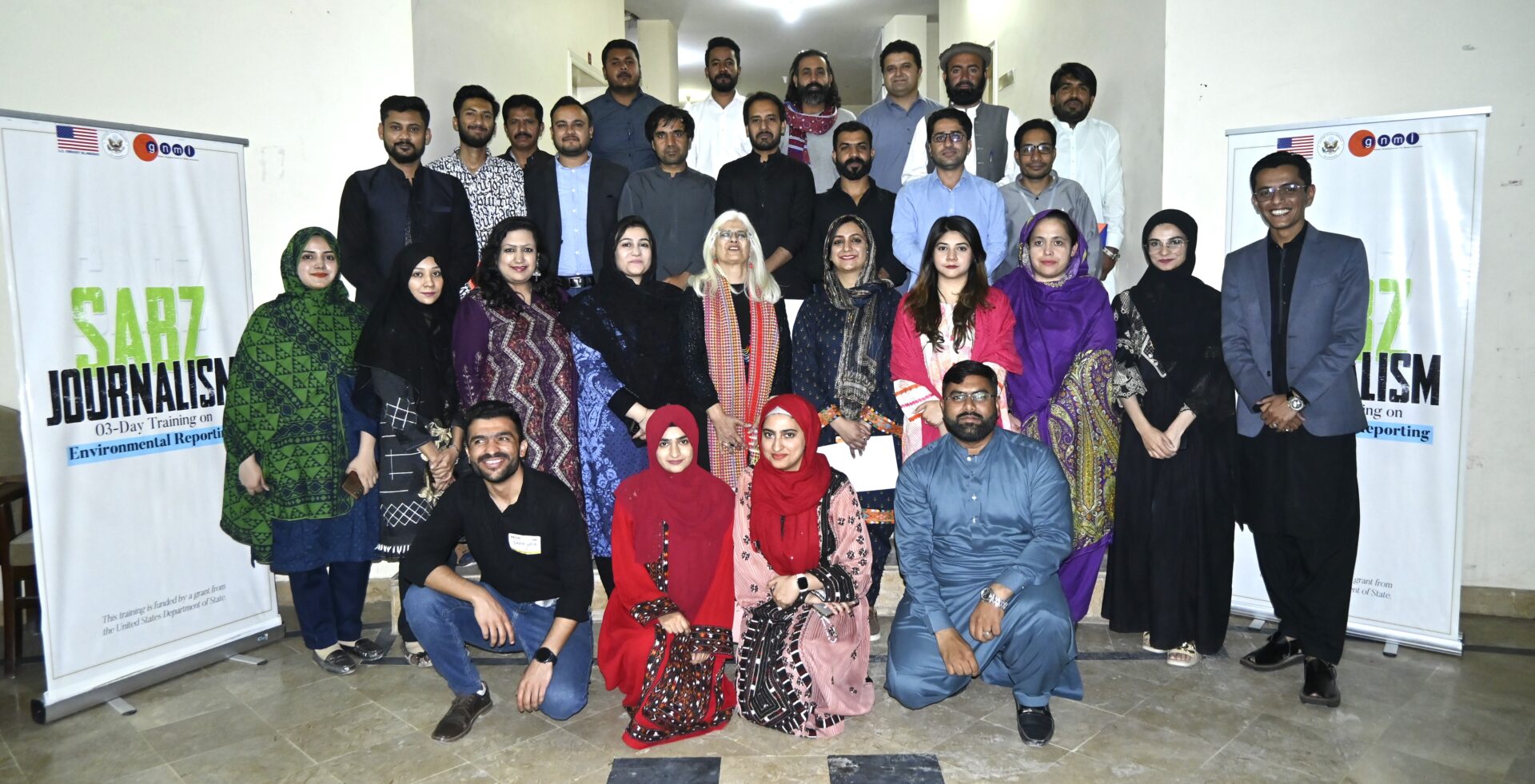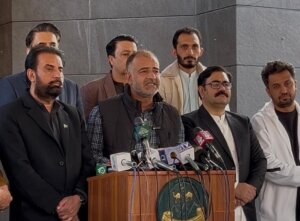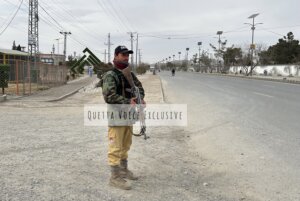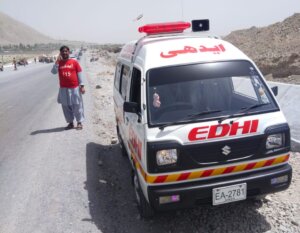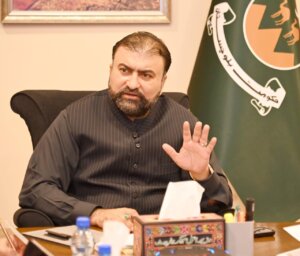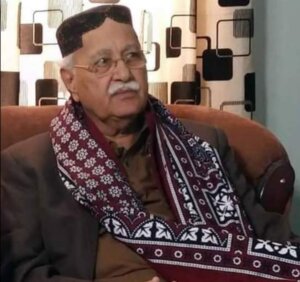News Desk:
Quetta, nestled amidst the majestic Sulaiman and Toba Kakar mountain ranges, serves as a testament to the resilience of its people and the intricate relationship between human communities and the environment. Despite facing challenges like desertification and water scarcity, this city remains a symbol of natural beauty and cultural heritage.
In an effort to bolster environmental journalism in the region, the Global Neighbourhood for Media Innovation (GNMI), in collaboration with the United States Department of State, organized a 3-Day Sabz Journalism Environmental Journalism training in Quetta. Led by senior environmental journalist Afia Salam, the training aimed to empower mid-level journalists, digital content producers, and filmmakers actively engaged in climate-related reporting.
Husnain Raza, Director of GNMI, emphasized the pivotal role of environmental journalism in raising awareness and influencing public discourse on ecological challenges. He stated, “With this training initiative, our objective is to empower journalists and content creators with the necessary expertise and tools to amplify climate reporting specifically tailored to the unique environmental context of Quetta and its surrounding regions.”
Dr. Tahir Rasheed, Chief Executive Officer of Balochistan Rural Support Programme (BRSP), highlighted the importance of understanding rural dynamics and ecological diversity for accurate reporting on environmental issues in Balochistan. Seasoned journalist Syed Ali Shah, Founder of Quetta Voice, emphasized the responsibility of journalists to rely on factual data and digital platforms to amplify local narratives.
The training covered topics such as understanding environmental science, data-driven story production, digital storytelling techniques, and content dissemination strategies. Distinguished experts, including acclaimed filmmaker Nasser Rind and digital marketing specialist Shah Zaib, led sessions to enhance participants’ skills and knowledge.
Participants, representing reputable media houses such as Pakistan Television (PTV) and Voice of America (Urdu), voiced their commitment to addressing climate challenges comprehensively. They emphasized the need for concerted efforts to mitigate the impacts of climate change and ensure a sustainable future for Balochistan’s fragile ecosystems.
The Sabz Journalism Fellowship Program aims to promote awareness and understanding of environmental issues among the public while fostering data-driven and investigative reporting. With the support of the United States Department of State, GNMI is committed to improving the quality and volume of environmental reporting in Pakistan, ultimately contributing to better-informed decision-making on environmental issues.
